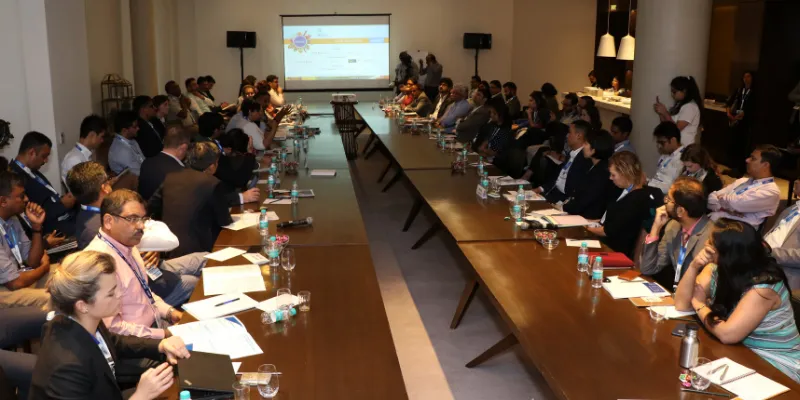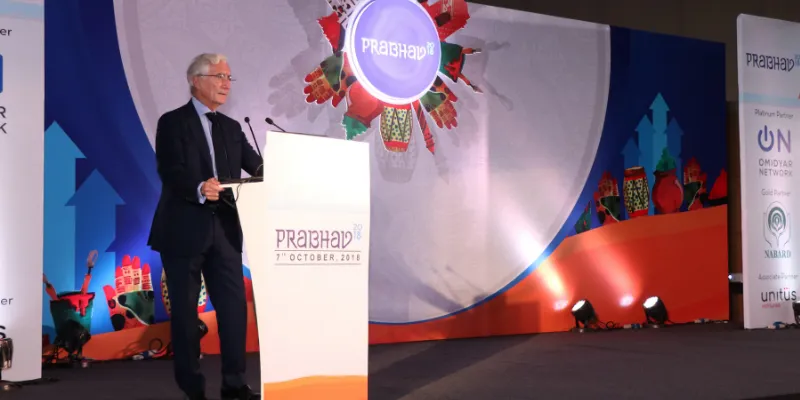Here's what happened when 300 impact investors from 50 countries got together in India
At Prabhav 2018, organised by Impact Investors Council of India and held at Delhi recently, stakeholders came together to discuss ways to harness investment that can create a quantifiable impact on the ground.
Increased awareness to invest in businesses that work on creating social, environmental and economic impact across the globe saw impact investments of $1.1 billion in India in 2016 alone.
Bringing impact capital and social entrepreneurship under one umbrella, issues from lack of access to basic education and healthcare, to climate change and the refugee crisis are being addressed at scale. With purpose-driven finance finding safe waters in India, the world is gearing up for a global market for impact investments, which is estimated to grow to $300 billion by 2020, according to a report by the Global Steering Group.
The impact investment space, which makes investments in companies and organisations that produce measurable social and environmental impact, apart from their financial targets, has seen more thrust now. A holistic approach to involve all stakeholders has made India a hotbed for impact investment, with the country attracting 50 active impact investors between 2010 and 2016.
Prabhav 2018, the two-day event hosted by Impact Investors Council saw the participation of the who’s who of the impact investment space. Through this event, the country’s only impact investing industry body aimed to showcase how the sector has aligned itself with UN’s Sustainable Development Goals (SDGs), which revolve around sectors like agriculture, clean energy, education, financial inclusion, water, sanitation, and healthcare.

The biennial event hosted 300 impact investment leaders from over 50 countries and was preceded by the GSG Impact Summit 2018. On the risk-return aspect of impact businesses, Sir Ronald Cohen, Chairman of Global Steering Group, said,
New investment approaches takes a long time to get established. Impact entrepreneurs should understand that when you bring an impact lens to your business, you are addressing both the risk and the return dimension. You improve the long-term risks because the government and other stakeholders will be supporting you. When you consider the scale of the issue we face today, the ability to reduce the long-term risks of businesses is too hard and can be questioned. It is the new entrants who will be in the waiting with new business modules and will prove that impact does affect the return dimension.

Geeta Goel, Country Director of Michael & Susan Dell Foundation and Chairperson of Impact Investors Council, said that the event was globally the largest LP-GP platform for impact investment, and shined the spotlight on India’s role in the space:
India is a country of 1.4 billion people but this 1.4 billion is not the market for impact investment. We are only catering to a segment of it. The segment that the impact investors cater to is right above the below-poverty-line. Around 56 percent of India’s population doesn’t have the basic minimum, like water, sanitation, housing, health, food and employment. This is why there is no playground better than India for impact investors to test waters.
India is already seeing tremendous work done in terms of local innovation and entrepreneurship to fill the economic and social gaps at the grassroots level. “When impact investment steps in we can institutionalise and unlock this market. We can now scale it up with the right aspiration and technology,” she added.
The conference hosted conversations on topics like ‘No Poverty through Financial Inclusion’, led by Royston Braganza - CEO, Grameen Capital, where Anuradha Ramchandran of Omidyar Network spoke about the good work the government is doing to increase digitisation for the benefit of the country. The other discussions were; Gender Equality and Women's Economic Empowerment led by Kartik Desai, Executive Director, Asha Impact; Zero Good Health and Wellbeing led by Krishnan Neelkanthan, Senior Director, Ankur Capital.
The conversation on ‘Decent work and Economic Growth’, led by Namita Dalmia, Principal - Investments, Omidyar Network, saw various inputs on skilling from representatives from Avanti Fellows, online learning platform Vedantu and GMC Impact. On better waste management initiatives, an attendee said, "Waste management system will improve if segregation of waste is done properly. Implementation of policies by waste pickers, producers of waste and companies that are related to management of waste should go hand in hand."
The crowded rooms during the event also noted conversations on Clean water and Sanitation led by Mark Peters, Water, Sanitation & Hygiene Team Lead, USAID; Affordable and Clean Energy led by Avishek Gupta - Investment Director, Caspian; Sustainable Cities and Communities led by Ajit Pai, Consultant, Vice Chairman; Hunger and Food Security led by Hemendra Mathur - Venture Partner, Bharat Innovation Fund and Impact Measurement led by Emily G Wright - Fellow - Global Economy and Development, Center for Universal Education.
With millions of lives already benefitting from impact ventures delivering social and environmental outcomes alongside financial returns, it is a proven fact that capital invested in carefully-selected programmes can unlock change on the ground, and can benefit more people and the planet. And a pluralistic India, with its unique economic, social and environmental challenges, can truly be the testing ground for creating lasting impact.
The study on the social entrepreneurship landscape in India is particularly befitting to this objective as India will soon be the most populous country in the world. In spite of its challenges, the country aims to build an inclusive and prosperous society. Prabhav was one such intervention where the spotlight shifted from the problems to the solutions, keeping in mind the innovative partnerships between corporates, government, public funded labs.







